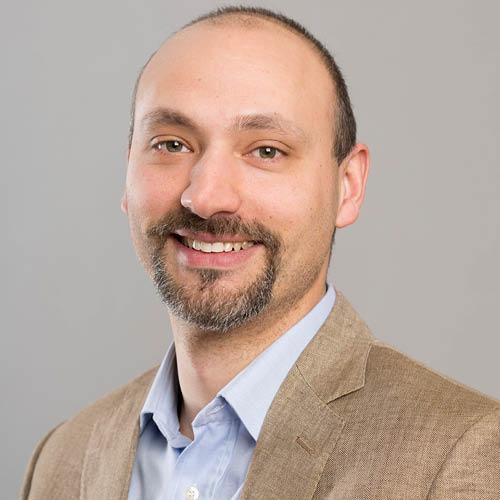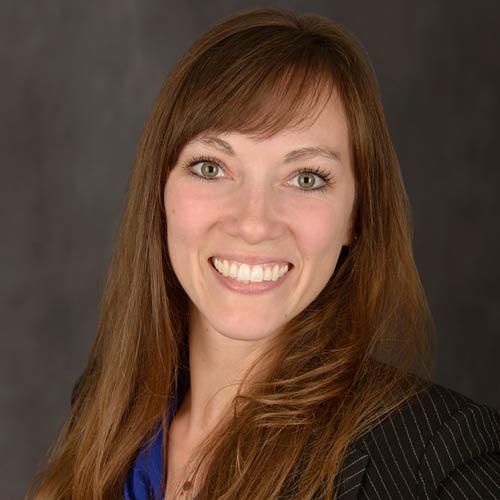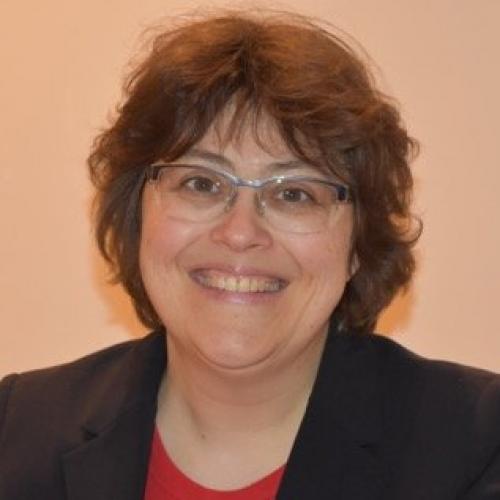
Moulay Elalamy
Moulay Elalamy is Vice President of Information Technology for Benchmark, the largest provider of senior housing in the Northeast, where he oversees the infrastructure, applications and business intelligence teams and serves on the organization’s innovation task force. Moulay transitioned into senior living from the hospitality industry and holds an MBA in International Business from Bentley College near Benchmark’s home office in Waltham, Massachusetts.

Doug Leidig
As President & Chief Executive Officer of Asbury Communities, Inc., Doug has more than 25 years of experience dedicated to enhancing and enriching the lives of older adults. During more than 20 years with Asbury, he has set in place the foundation for organizational growth and mission expansion through encouraging accountability, data-driven decisions, and innovation.
During Doug’s career, he has overseen the operations of several senior living communities and implemented numerous advancements in care and wellness for residents within those communities.
Doug is currently on the advisory board for Senior Living 100, the premier leadership event for C-level executives from the nation’s largest, most progressive assisted living, independent living and continuing care providers; serves on the board for Caring Communities, an industry insurance provider; and is a board member of The Healthcare Council.
He previously served as the Chair of LeadingAge Maryland and as a Director on the Kairos Health System Board. Doug is a licensed nursing home administrator in Maryland and Pennsylvania and holds a bachelor’s degree in long-term care administration from York College and an MBA from Mount St. Mary’s University.

Chris Harper
Chris Harper is the Vice President of Communication at The Arbor Company, an operator of more than 40 independent living, assisted living, and memory care communities in 11 states. At Arbor, Chris is responsible for the company’s digital and brand marketing strategies, internal and external communications, as well as anything related to technology. Prior to joining The Arbor Company, Chris served in roles in public affairs, operations, and show production in the entertainment and hospitality industry.

Charlie Jennings
Charlie discovered the Senior Housing industry after enjoying an 18-year career in residential development and construction but transforming the living environments of seniors has proven to be the most fulfilling use of his abilities. Motivated in part by his military service, he is moved to care for many of the veterans and their spouses who are part of the "Greatest Generation".
Charlie holds a Bachelor of Science in Civil and Infrastructure Engineering from George Mason University and is a decorated veteran of the United States Marine Corps.
Charlie has a diverse professional background ranging from the development of single-family homes to urban, infill high-rise residential and mixed-use projects. Charlie has built his reputation with an organizational ethic dedicated to risk management, cost control, and construction oversight. Charlie not only leads the development of new communities for HRA, but also manages the renovations and refurbishment of existing communities. He is dedicated to understanding the unique cognitive and physical challenges facing seniors and how improvements in building architecture, interior design and even the correct furniture choice can enhance the lives of HRA's residents.
Harbor Retirement Associates (“HRA”) is a vertically integrated regional senior living development and management company, focused primarily on Assisted Living and Memory Care communities. HRA is also engaged in the development and operations of Independent Living and Skilled Nursing communities.
HRA operates more than 35 communities in 8 states and is partnering on the construction of even more communities in 7 additional states. HRA manages over $150 million in revenue and approximately $1 billion in assets while employing 2,800 associates.

Arthur W. Harvey III
Arthur W. Harvey III, MS, CPHIMS has 30 years of experience in the healthcare informatics field with a particular focus on building high performing HIT teams at provider organizations. He currently serves as Vice President and Chief Information Officer at Boston Medical Center Health System overseeing overall IT strategy for both Boston Medical Center and the Boston Medical Center HealthNet Plan. Arthur holds a BA from Boston College in Economics and Computer Science as well as an MS in Information Technology Management from Brandeis University. He is a Certified Professional in Healthcare Information Management Systems and serves as the chair of the CIO Council for the New England Chapter of HIMSS.

Allison Groves
Alli is Director of Clinical Operations at Carlton Senior Living where she oversees the clinical program of 11 communities supporting approximately 1,200 plus residents. She graduated from Cornell University and has her Masters in Gerontology from USC.

Catherine Aung

Saundra Pelletier

Dr. Raoul Scherwitzl
